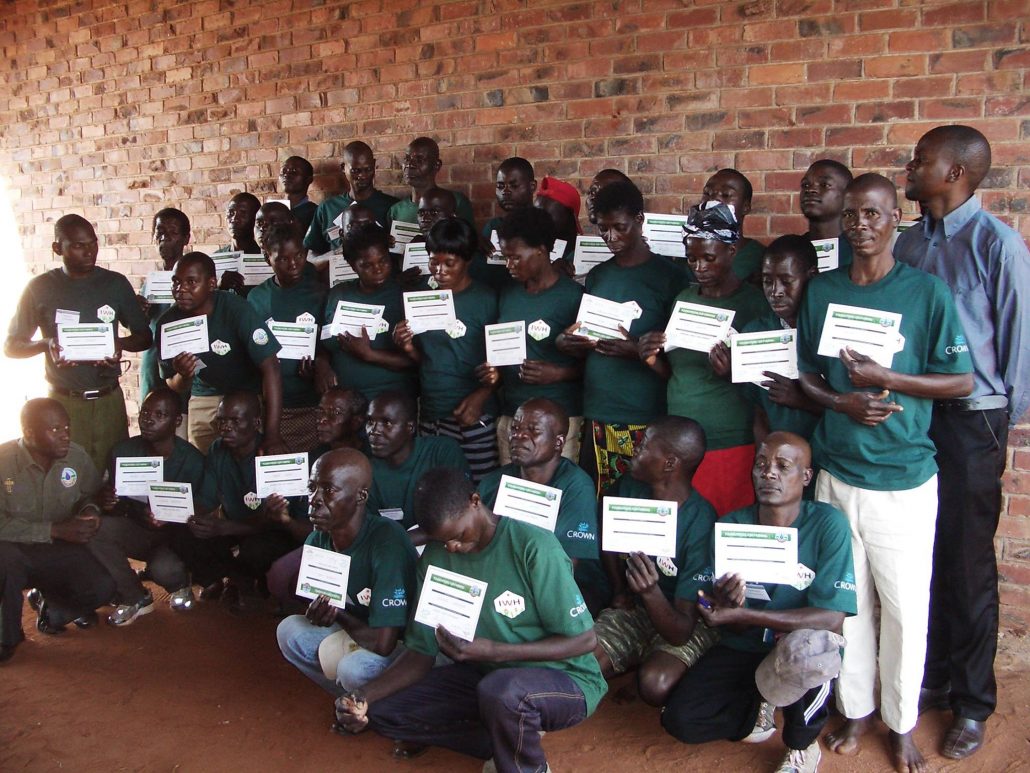It was after 10pm by the time the thirty weary travelers disembarked at Clouds End. It had been a long journey from Kanyemba in the far north of Zimbabwe, and several had never been on a bus in their lives before. There was very little luggage. Most had travelled light – really light – as in no bags at all. There was nothing to pack; they were wearing the only clothes they had. And no shoes.
A meal had been prepared for them, and although the hospitality team smiled and spoke reassuringly, several faces responded with anxious looks. Everything was new and strange, even the food. But they ate gratefully, they were hungry and the night was cold, so very cold. In Kanyemba there is no winter.
The surroundings had melted into darkness, except for the lights of the house to which Rosie and her team were leading the group of women after eating. Some hesitated at the door – and suddenly she realised they were afraid to enter. Not all were used to buildings; their homes consisted of elevated, open huts, with grass mats on which to sleep. She beckoned to them, and gently explained that this was where they would be sleeping. They stared at the beds wide-eyed, then looked at Rosie questioningly.
Next the bathroom. About half the group had never seen a toilet before, and bathing consisted of a ‘dip’ in the river – not a tub – where hot water shot out of a tap!
The rest of the team were experiencing a similar response – a group of men stood huddled under a tree outside the other house, in the freezing cold. They too were dubious about staying inside the building. Being under the tree felt more familiar … and safer.
Thankfully two pastors, who live and serve amongst the Kanyemba people, were part of the group and able to assist the team in reassuring and encouraging. Gradually over the next couple of days things settled, friendships started forming and the group began learning. From the art of mastering western-style ablutions to absorbing what was being taught in the classrooms, every single person applied themselves with determined dedication. In a while soap suds were frothing, duvets were snuggled, and laughter began to abound.
In the classrooms there was an intense hunger for knowledge. Not only was this a whole new world, it was also a whole new method of farming! …And no, it was not the white man’s way, explained the trainers, it was God’s way. They were also taught God’s design for family and how the same principles of humility, faithfulness and unselfishness apply. They learned about budgeting, which was interesting for them – in Kanyemba money is rarely seen – people mostly barter. However, with their newfound knowledge applied, harvests should increase and they will need wisdom.
Mashoko is the trainer who will be overseeing this group in the coming year. He noticed one young man who always attracted criticism and scorn. As a result, Mzunza was solitary and withdrawn. Mashoko befriended him, encouraging and affirming the young man, while using the situation to highlight to the others how everyone is equally valuable in God’s sight and deserving of love and respect. The ridicule subsided, and Mzunza became included and accepted by the others.
Clothing had been donated by the church and Mzunza was given his share of some shirts. Mashoko noticed that he kept changing several times during the day. For the very first time in his life, he had more than one set of clothes!
No wonder God loves His precious poor. They are unsullied by the abrasive gravel of self-elevation, and all that the world calls ‘important’. The focus is not on ‘want’, it simply rests on ‘need’. It makes one think. Seriously it does! How much of ‘want’ … do we call ‘need’? In Zimbabwe one watches the rich continually out-bling one another with the latest, must-have, top-of-the-range vehicles, as Mr. Average struggles to purchase a single new tire for his very second-hand little Japanese import. Want vs need. But what does it do to your heart to watch a man reach – in utter delight – for the gift of a second-hand pair of shoes to cover his bare feet? It humbles you, and washes your perspective of what is real.
Mother Theresa, known for her love of the poorest of the poor, died owning two garments and one pair of sandals …
This Friday, as we shared morning devotions, the resounding joy of Shona praise ringing out from that little upper room was wonderful! Afterwards people were invited to share. Twenty had come to know Jesus. It is always a deeply moving time for the team when people speak out about what they have learned, and how their lives have changed. One man playfully gave thanks for learning how to bathe! But as they spoke, it was clear that many would return home to shine as bright lights, multiplying knowledge. Three different villages were represented there, one being the Doma people. These are truly the poorest of the country’s poor, a group commonly looked down and treated with disdain. A young man from this group stood. Quietly he thanked the team, then said,
“Wherever we Doma people go, we are treated like animals, but here we have received such love. Thank you.”
Oh Lord.
Thank You for the immense privilege of serving these precious, precious people. For the honour of being Your hands, and Your mouthpiece. Once more we have learned so much about Your heart …

